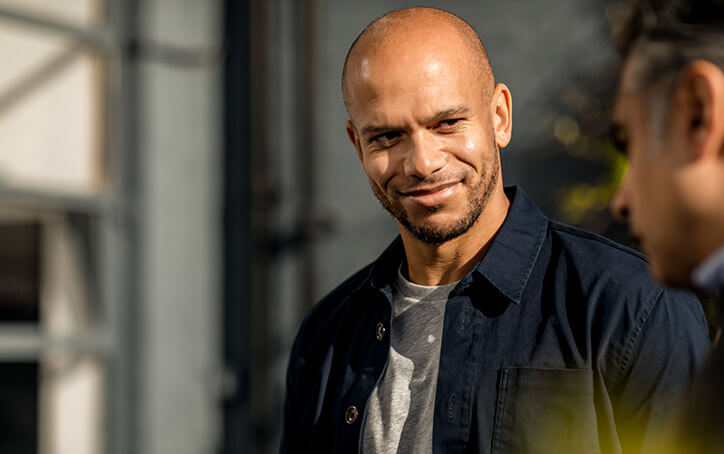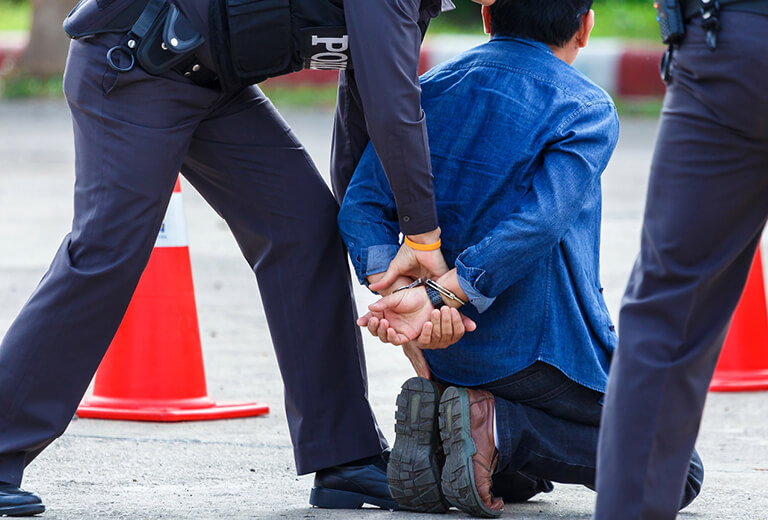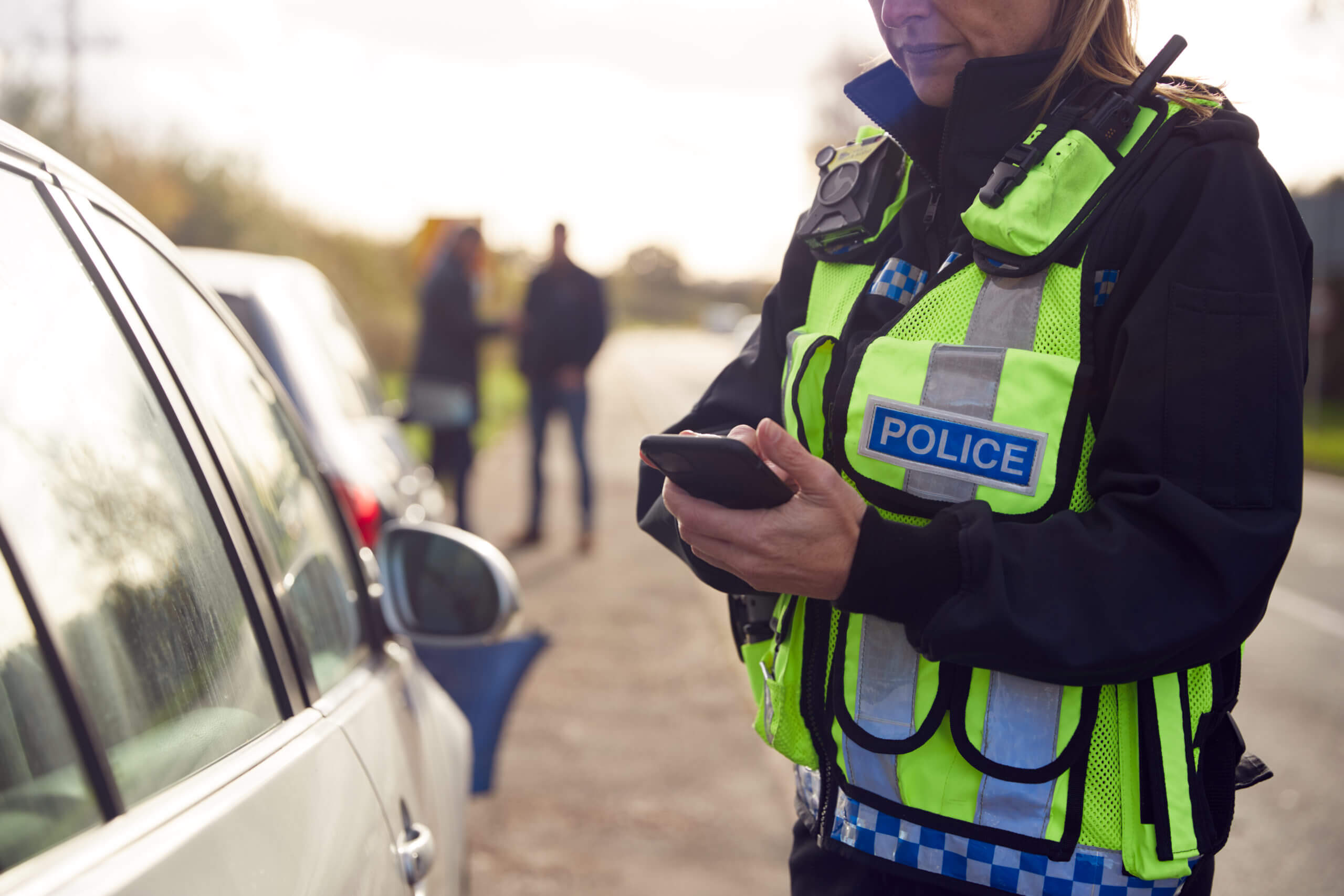Explore Criminology at ACAP
Police officers are at the frontline of crime prevention, emergency response and community engagement. If you’ve ever wondered, “How do I become a police officer?”, ACAP has you covered!
In this guide, we’ll walk you through how to become a police officer in Australia, including educational pathways, required skills and the steps for how to join the police force.
Whether you’re fresh out of school, thinking of a career change or just curious about how to join the police force, we’re here to help. Let’s get started by uncovering what a police officer is and what this role entails.

What is A POLICE OFFICER?
Police officers are the everyday heroes who keep our communities safe. They play a vital role in maintaining public order, preventing crime and upholding the law. Becoming a police officer means embarking on a rewarding, fulfilling, challenging and diverse career; upholding what’s right in society and ensuring the safety of others.
What DOES A POLICE OFFICER DO?
No two days are the same for a police officer. One day, you might be at the scene of a traffic incident, and the next, you could be part of solving a robbery. Police officers have a wide range of responsibilities, including patrolling neighbourhoods, investigating crimes, responding to emergencies and offering community support. As you gain more experience, you can specialise in different areas of law enforcement, such as being a forensic specialist or a detective.

How to become a POLICE OFFICER in Australia
Still wondering, “How do I become a police officer?”. While the entry requirements vary by state or territory, the recruitment process generally follows these steps:
- Meet the Basic Requirements:
You must be at least 18 years old, have Australian or New Zealand citizenship, and hold a valid driver’s license. - Provide Documentation:
Provide certified copies of key documents, such as your birth certificate, driving history and references. - Physical, Medical and Psychological Testing:
You will have to pass fitness tests, psychological evaluations, swimming proficiency tests and medical tests. - Attend a Police Academy:
After being accepted, you’ll receive training at a police academy for 6-12 months, covering both classroom learning and practical skills. - On-the-Job Training:
After the academy, you’ll gain hands-on experience through on-the-job training with experienced officers.
Each state and territory in Australia has its own recruitment process addressing how to become a police officer, so it’s important to research the specific force you’re interested in.
Here are a few key differences to consider:
- In Queensland and New South Wales, the process includes a panel interview, usually with one or two police officers.
- In New South Wales, candidates must complete a four-week University Certificate in Workforce Essentials to proceed to the Associate Degree in Policing Practice at the NSW Police Academy.
- In Victoria, candidates first need to pass an entrance exam, which covers topics like abstract reasoning, summary writing, oral communications, digital literacy and verbal reasoning.
- Visible tattoos on your head, face, neck or hands can affect your police application. In some states, like New South Wales, applicants must submit photos of their tattoos for approval before moving forward in the process.

Frequently asked questions about HOW TO BECOME A CRIMINOLOGIST
WHAT DO YOU NEED TO BECOME A POLICE OFFICER?
To successfully work as a police officer, it’s important to build on key skills such as:
- Communication Skills: Effective communication, both verbal and written, is key for police officers who deal with people from all walks of life. Officers often need to write detailed reports after responding to an incident.
- Problem-Solving Abilities: You’ll often face situations that require fast, strategic thinking. Learning how to assess situations and make decisions quickly will be vital to your success in the police force.
- Emotional Resilience: Developing emotional strength and resilience will help you cope with the challenging and confronting situations you’ll face as a police officer.
- Cultural Awareness: Australia is a diverse country, and understanding different cultures and backgrounds is important for inclusive community policing and being able to assist those in need from a wide range of backgrounds.
A higher education degree in criminology, criminal justice or a related field can also give you a competitive edge and a deeper understanding of the criminal justice system. At ACAP, there are several ways you can study criminology and help kickstart your career:
- Associate Degree of Criminal Justice: This two-year course (full-time) provides foundational knowledge in criminal psychology, crime prevention, law enforcement and corrections services.
- Bachelor of Criminology and Justice: A three-year (full-time) degree providing deep insight into understanding the minds of offenders, and how criminal law and social control fit into our justice system.
- Bachelor of Psychological Science and Criminology: This three-year (full-time) degree equips you with practical skills and strategies to thrive in various roles within the criminal justice system. It also provides a deep understanding of how society influences crime and shapes criminal behaviour, preparing you for a well-rounded career in the field.
HOW MUCH IS A POLICE OFFICER SALARY?
According to Talent, starting salaries for police officers in Australia are around $64,000 per year. As you gain more experience or advance into specialised roles, your salary can exceed over $100,000. Since each state and territory has its own pay structure, it’s worth researching the specific awards in your area.
Incentives are often available to become a police officer, particularly in rural or remote areas. This could include travel allowance, discounted or free accommodation, meal allowance, relocation bonus, and other financial benefits.
WHAT ARE THE DIFFERENT TYPES OF POLICE OFFICERS?
Becoming a police officer opens up numerous career pathways. Specialisations within the police force can include:
- Detective
- Highway Patrol
- Rescue & Bomb Disposal Unit
- State Intelligence Command
- Marine Area Command
- Forensic Specialist
- Aviation Command.
IS BEING A POLICE OFFICER A GOOD JOB?
Becoming a police officer is a rewarding career for those passionate about community service and public safety. It offers job stability, with a constant demand for officers across Australia, particularly in growing urban areas and underserved rural regions. Although the role can be physically and emotionally demanding, many officers value the sense of purpose and the day-to-day variety the role brings.
ALTERNATIVE CAREERS FOR POLICE OFFICERS
After researching “How do I become a police officer?”, you might find that it’s not quite the right fit for you. Still want to work in law and justice? Fortunately, there are plenty of alternative career paths, including:
- Private Investigator
- Security Consultant
- Criminologist
- Emergency Management Officer
- Intelligence Officer
- Corporate Crime Analyst
- Counter Terrorism Expert
- Community Corrections Officer
- Paralegal.

READY TO BECOME A POLICE OFFICER?
If you’re ready to join the police force, research your chosen state’s police force and keep an eye on their application deadlines throughout the year.
Looking for a competitive edge? Start exploring ACAP’s criminology courses to help you stand out from the crowd. Our friendly Course Advisors are ready to answer any questions you may have.

